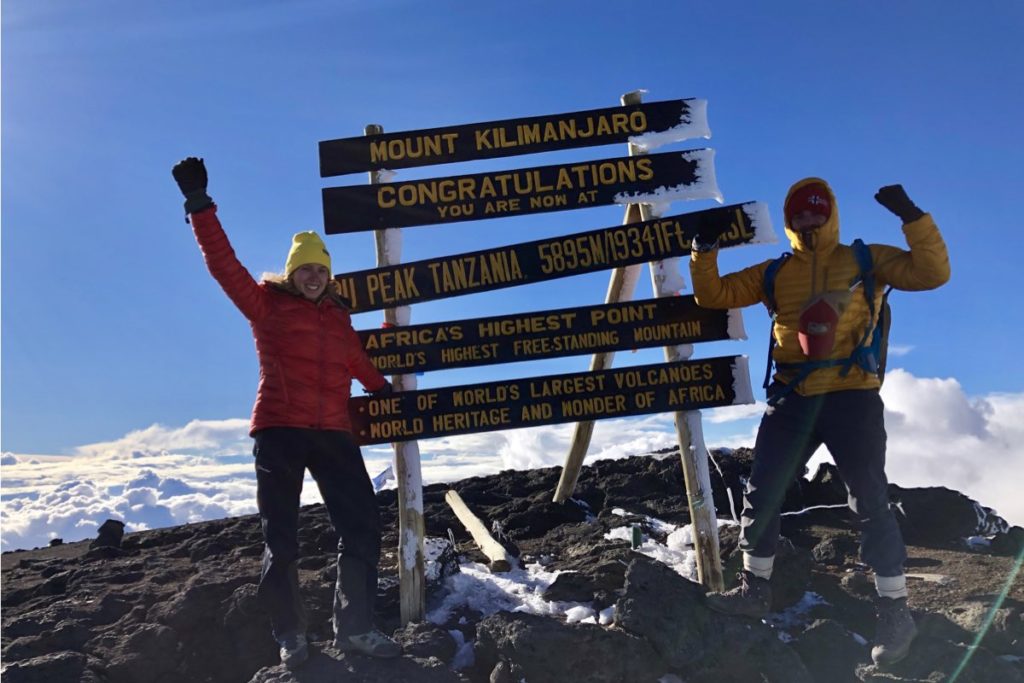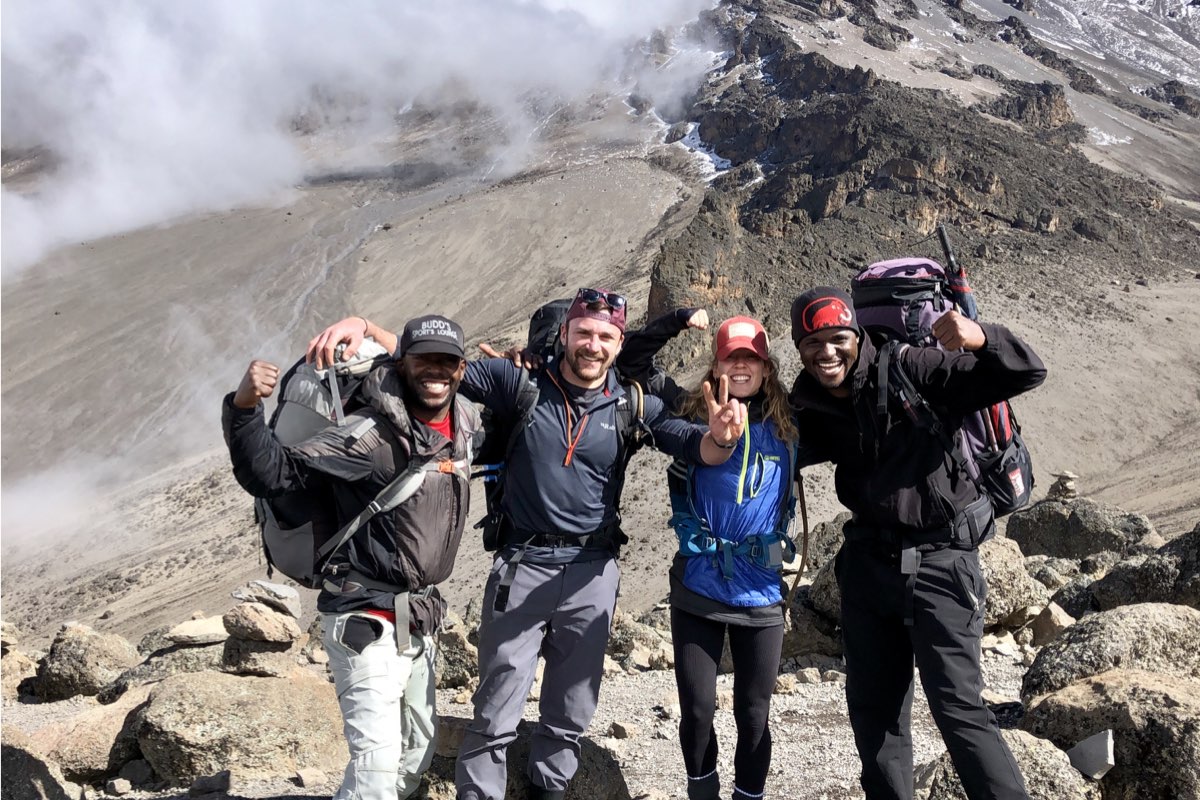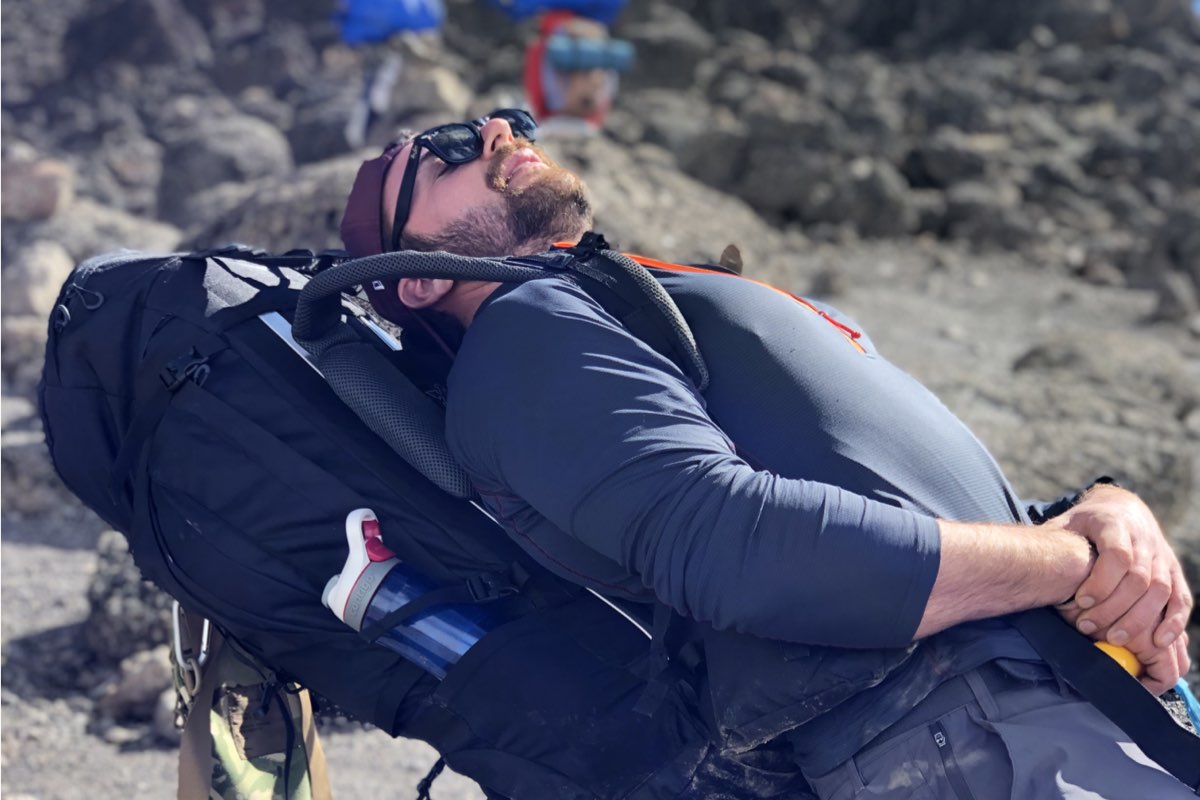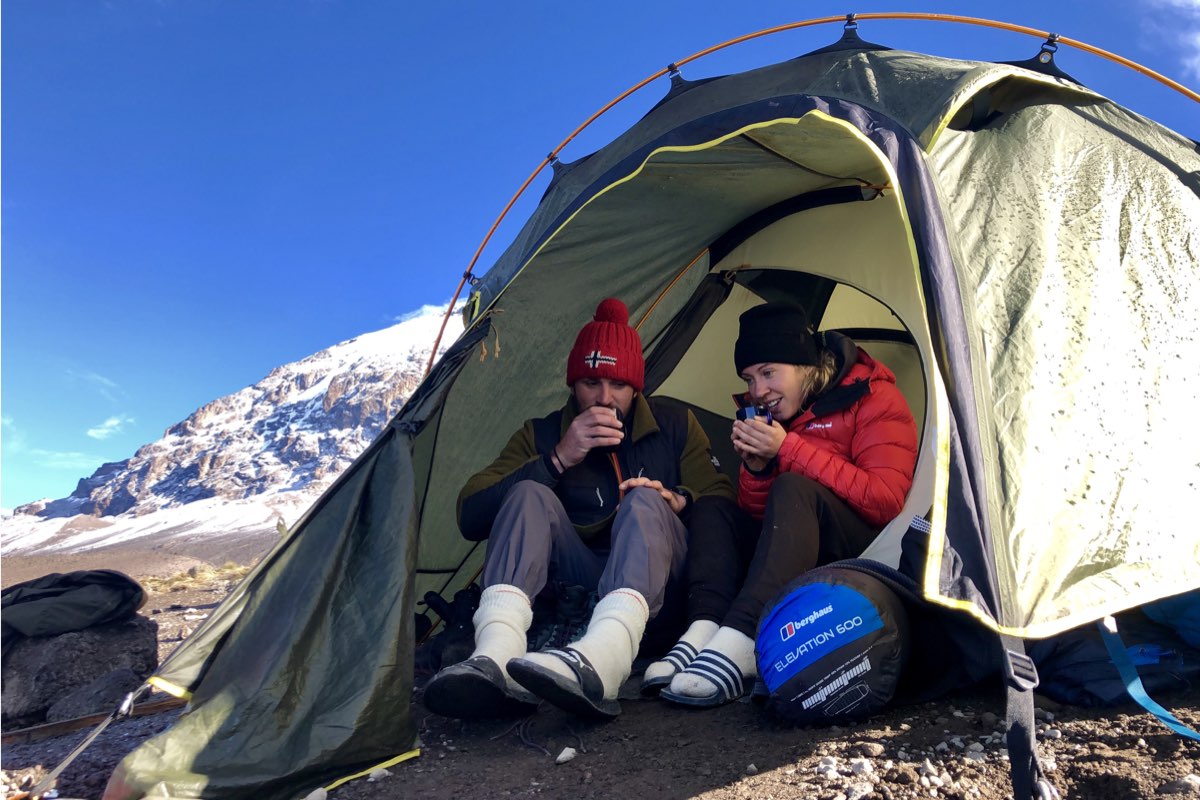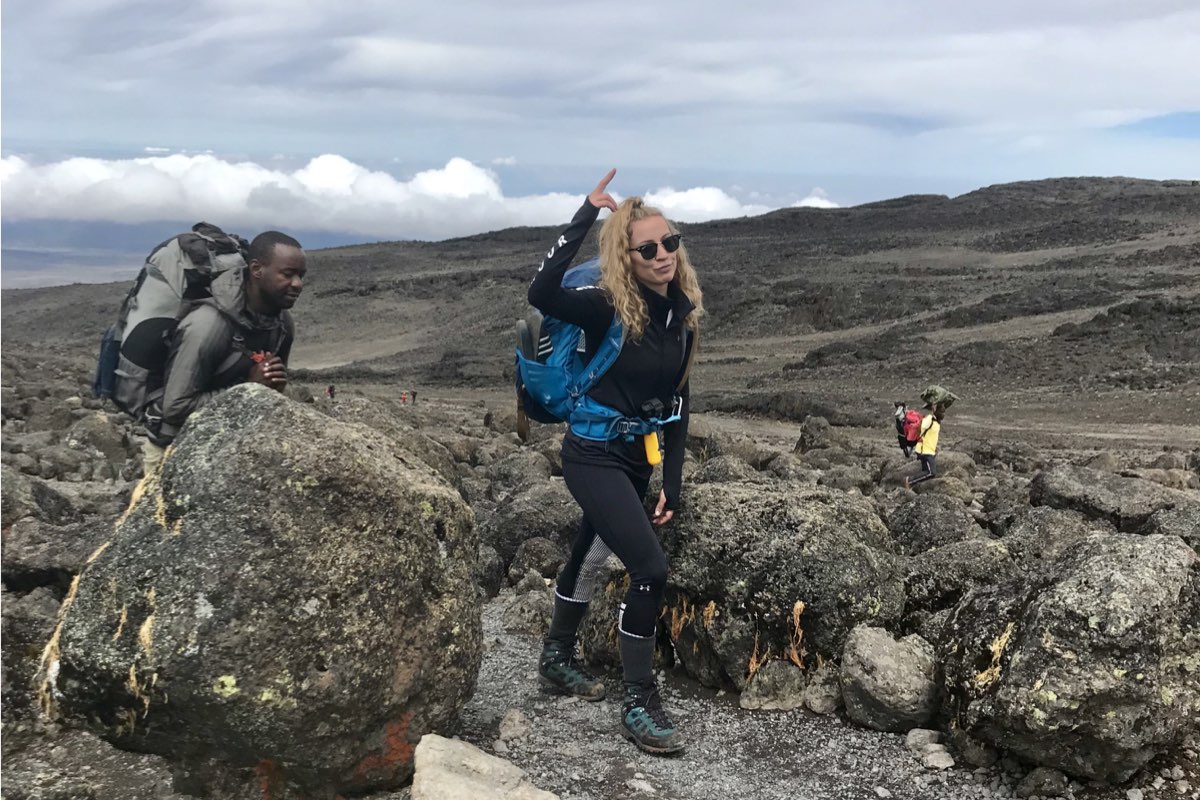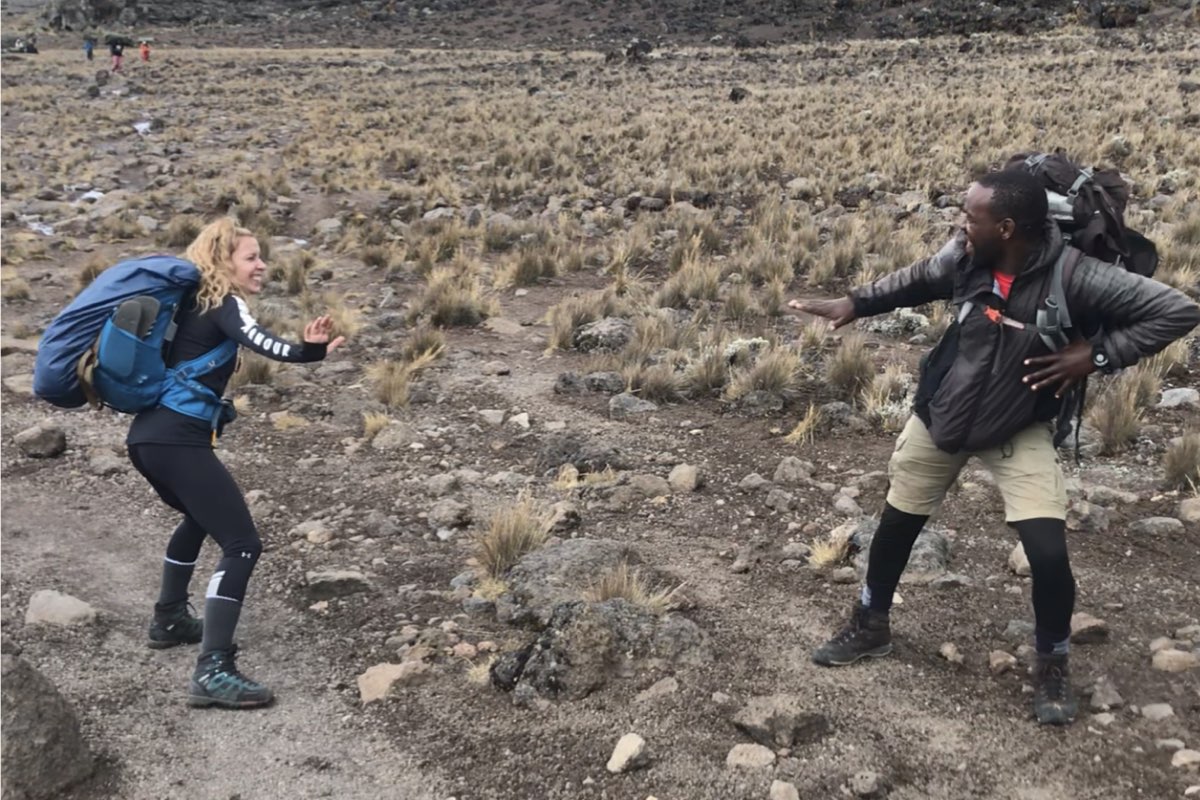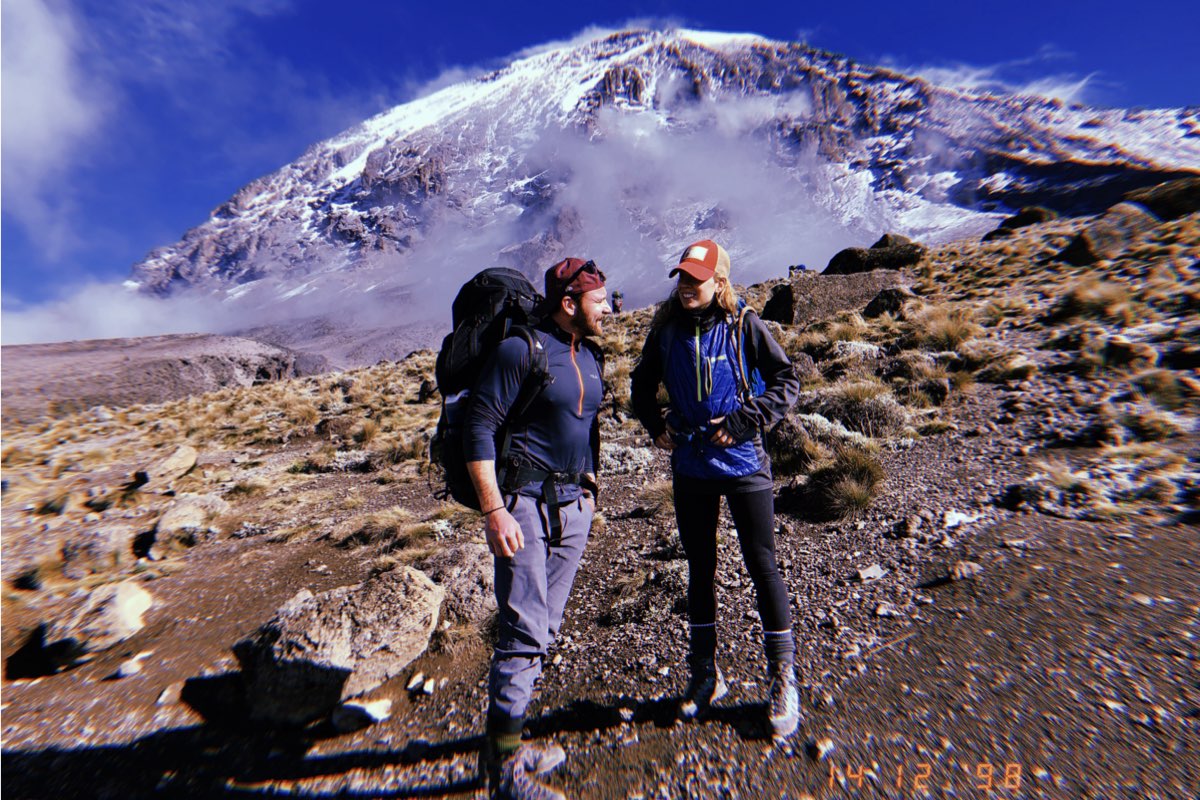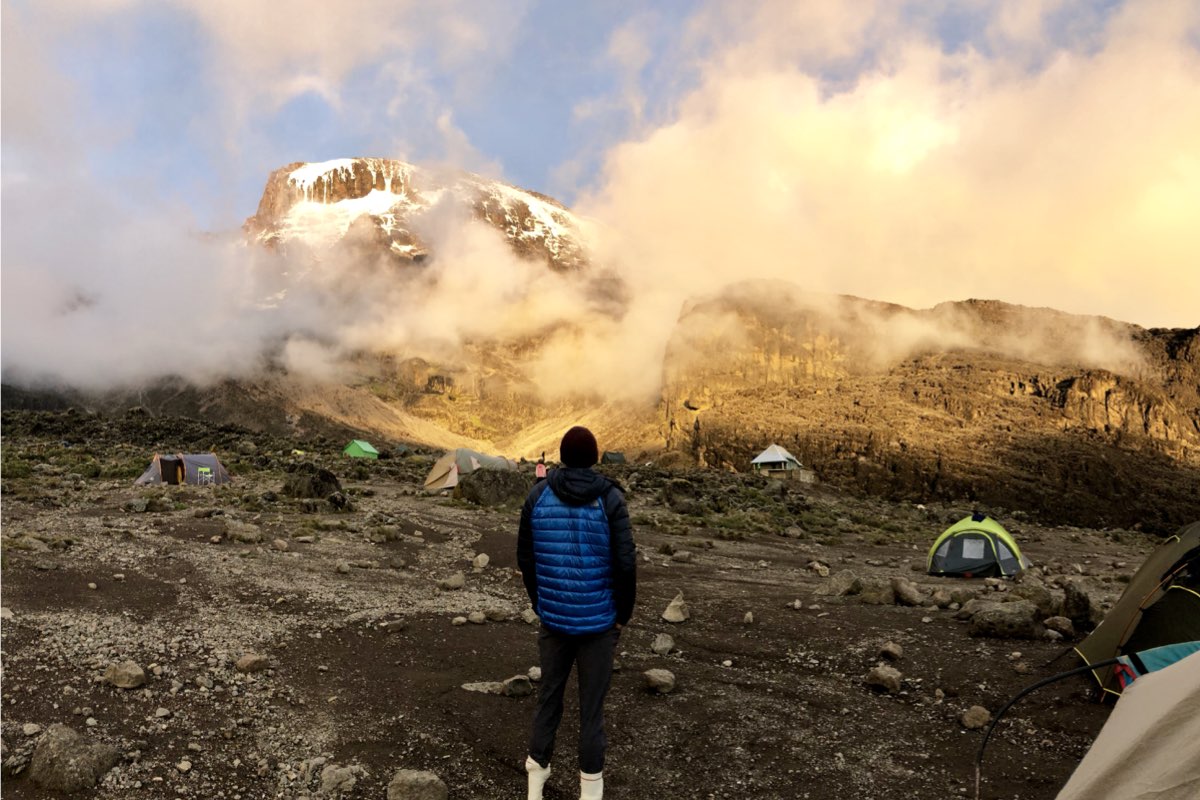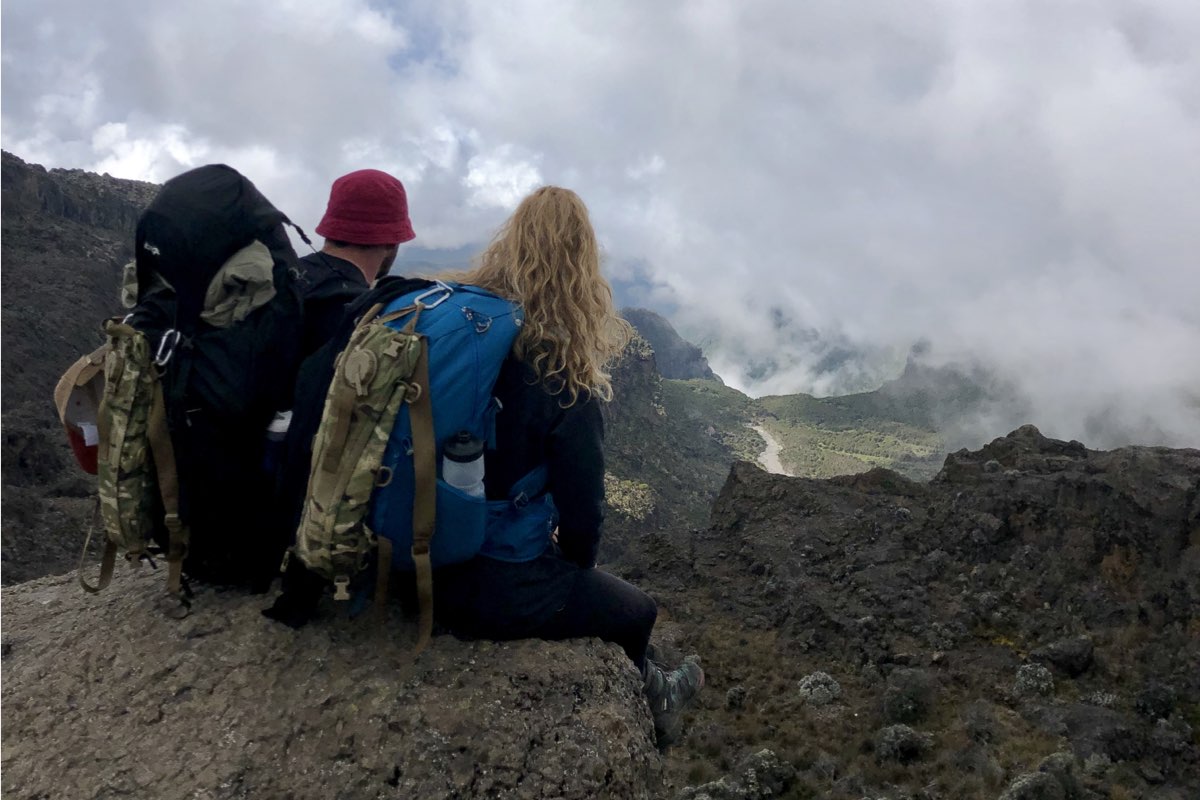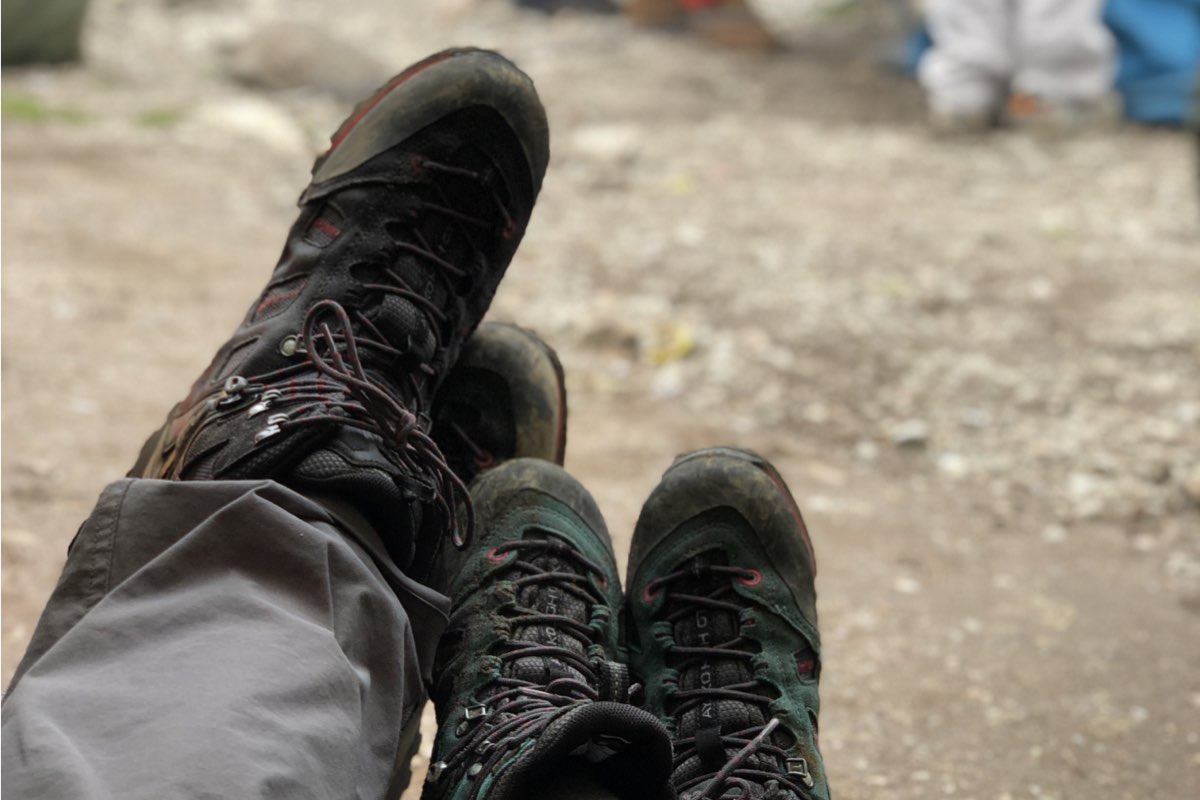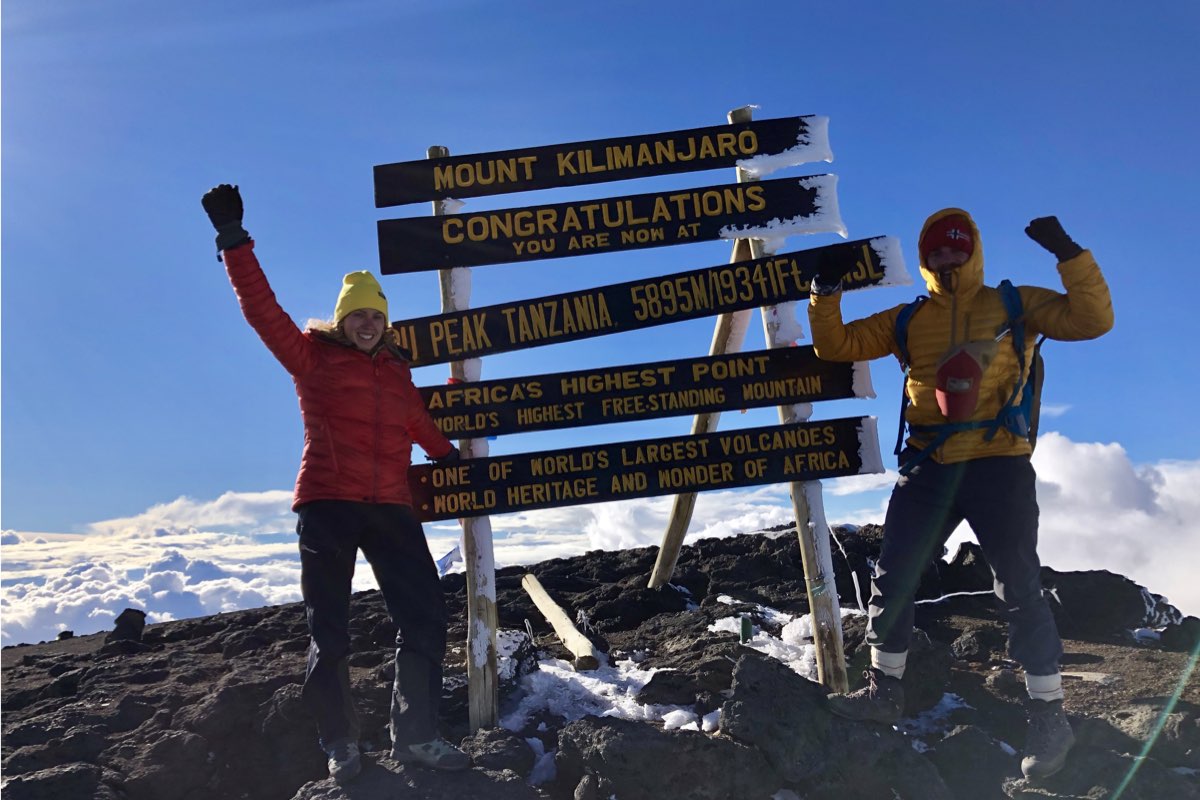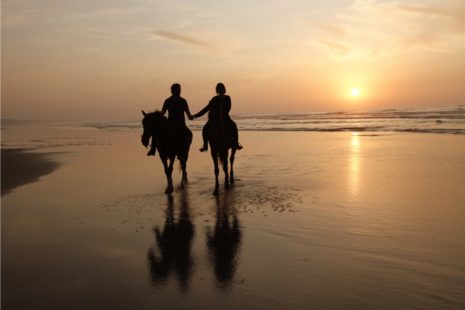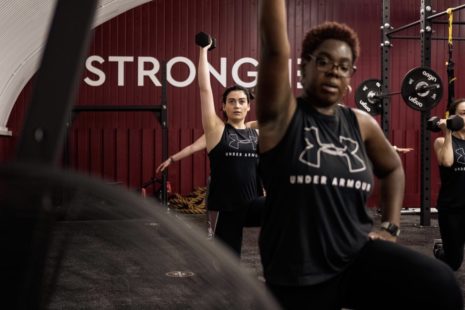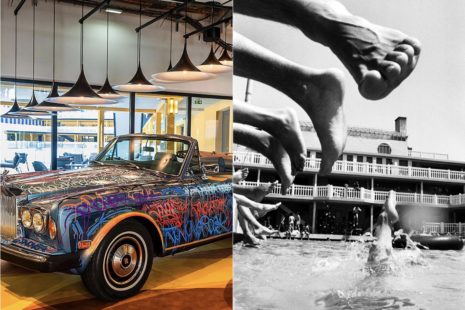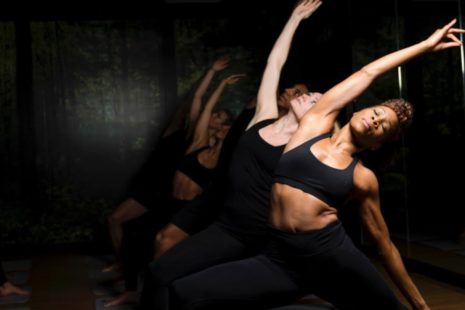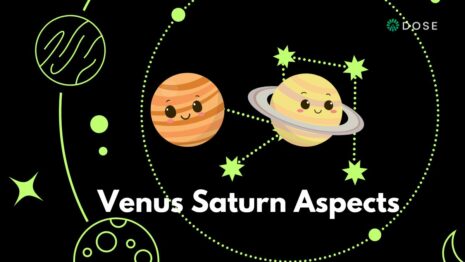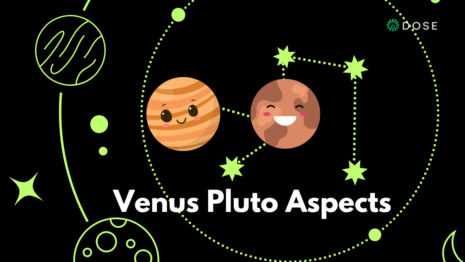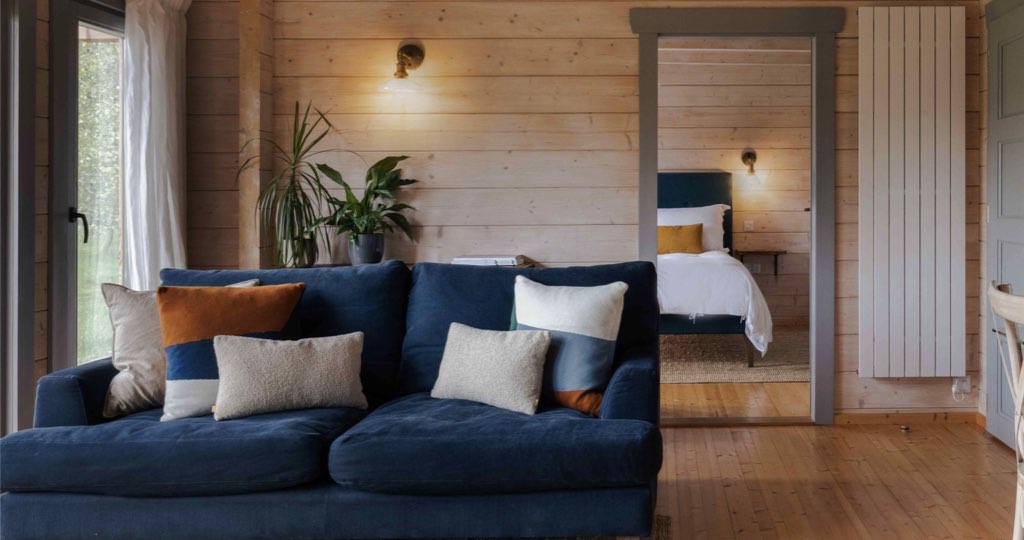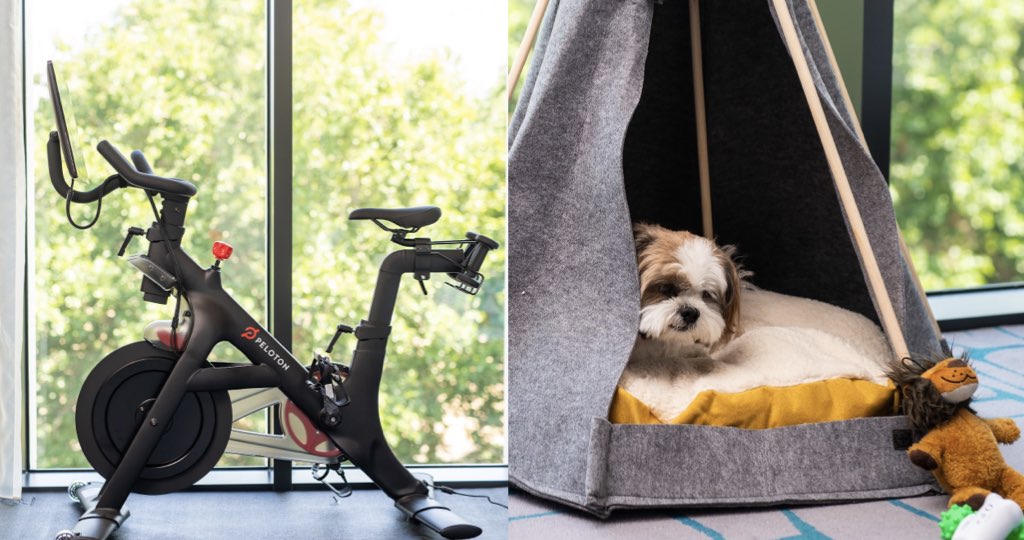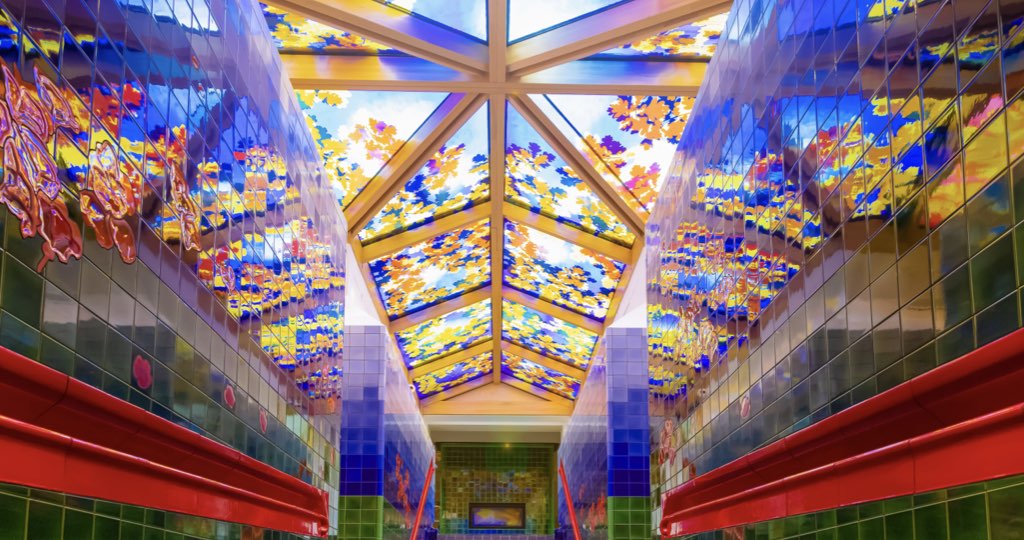One of London’s most beloved fitness trainers, Esmeé Gummer and Ex RAF Firefighter Mark Peart, report back on an adventure of a lifetime, climbing the tallest freestanding mountain on earth…
In December 2018 we decided to take on the challenge of climbing Mount Kilimanajaro. It was decided over drinks on our first ‘SAS: Who dares wins‘ recruit reunion. Within a month we were on a flight to Africa. We can both safely say it was the best decision we made to end the year and the memories we created will never be forgotten.
On the day of our flight we were running around London getting some last minute thermal gloves. As we went to leave the shop the lady behind the counter said in a mysterious way “Enjoy Kilimanjaro, it’s going to change your life”. The way she said it was as though she had somehow seen into our future, like she knew something we didn’t. We looked at each other and started thinking, I wonder what she means? Well, now we know. Here are the things we learned climbing Kilimanjaro. I think its safe to say, its not what you will expect…
The simple life is a beautiful life
When we first met the porters and the guides, it was very easy to stereotype them and almost feel sorry for them for what they didn’t have. We quickly realised that in fact we were the ones that they should be feeling sorry for. It became very clear that as a consequence of their “simple life” they had no idea what they didn’t have; all they knew was what was real and in front of them.
We got the simple pleasure of just hearing their uncontrollable laughter, every night, in their 2-man tent sleeping at least 5 of them. This is when we truly understood that they only made time in their lives for the things that were necessary; for them to survive and thrive. The main topics that came up in conversations were; their love for their family, being outdoors, happiness and their appreciation for their jobs.
We have a higher appreciation that the concept of having everything doesn’t equal happiness. Exposure to social media shows us what we haven’t got in our life rather than stopping to appreciate what we have got. The porters and guides almost have blinkers on to seeing what they don’t have, making them probably the happiest people we have ever met. We are making a conscious effort everyday to put our porter blinkers on.
Lose your ego
When it comes to altitude sickness there is nothing you can do. You can be the fittest, strongest person in the world but if the altitude sickness kicks in you just have to suck it up and accept it. It can only be described as being hungover and experiencing travel sickness all at once. One simple head turn can lead to hours of misery.
At 2,800M, Mark hit rock bottom with altitude sickness. Now if you know Mark you will agree that he is an absolute beast and you would expect that a climb up Kili would be a walk in the park for him. When we got to camp and the effects started kicking in there was nothing Mark could do other than drop his ego and accept the consequences. This meant taking a back seat, resting and admitting his weaknesses. Once Es knew this, she could do small things to help it pass. Encouraging Mark to eat, take in electrolytes, drink water and rest. Oh and also entertain him and take the mick to keep his mind off it.
Don’t be afraid to show and accept your weaknesses, even if it means showing yourself in a light that you think doesn’t reflect you.
The greatest adventure is simply a conversation
One of the biggest shocks for us was the amount of downtime we had. We were pretty rapid in the ascent to each camp leaving us hours of free time. This wasn’t something we were expecting when visualising our trip.
We spent most of our time sat on a chairs in a tent, drinking tea, listening to music and talking about anything and everything you could possibly imagine. The best part… we had no phones. Quickly we would find ourselves in deep conversations about subjects we had probably never even considered before. We would even take the time to dissect the experience of the day giving it a higher purpose in our journey. This bought a deeper value to escaping distractions and connecting.
Now we take time to put our phones down and meet people in person for a real and meaningful conversation.
Under promise, over deliver
It’s very easy when planning a trip to google, Instagram search and even speak to other people about their experiences. We consciously made an effort to not find out too much about what our trip had in store for us. Essentially we under promised ourselves rather than having an expectation of what we were about to experience.
Every part of our climb, from seeing monkeys to crossing waterfalls, to experiencing all types of environments including; jungle, dessert and snow, to arriving at each camp and seeing the summit ahead of us in different views, was a personal experience and better yet a surprise. It truly over delivered as we kept our minds clear of expectation.
Some things are best left unsaid. Live your own journey, experience your own adventure.
Hakuna Matata
Learning the native language Swahili was very important to the locals. They encouraged us to speak the phrases that we most needed to climb with them. When we took the time to learn them and use them, the appreciation from them was second to none.
Hakuna Matata means no worries. This phrase pretty much summed up the guides and the porters and their outlook on life. No problem was ever to big to manage and there was always a solution. Their energy was spent on making you feel relaxed and ensuring you enjoyed every single moment. The climb wasn’t just about the climb itself. We had music playing, we were exchanging culture differences and when it was time to take a break due to fatigue, we very quickly began laughing and dancing, distracting ourselves from the pain.
Absorb and appreciate other people’s values. Make time to learn. And if in doubt dance it out.
Persistence is key to success
The summit itself was without doubt the hardest part. Not due to distance or gradient but the sheer intensity of the altitude sickness.
Very quickly the altitude kicked in within the first hour of the 5 hour journey, making it an agonising journey up. Every part of your body and your mind is screaming and telling you to turn around. With Esmée throwing up and Mark feeling too unwell to even find the energy to drink water, there is no denying that summiting wasn’t as appealing as expected when we set off. There was no way we wanted to turn around, even though this meant the promise of feeling instantly better. It was about changing the way we thought, accepting this was temporary pain and it was inevitable. Eventually this would all be over and this moment would soon be a memory.
Embrace the moment otherwise it will come back and bite you. The persistence in our summit has taught us that pain is temporary but the memory of the achievement is permanent.
Because when you stop and look around this life is pretty amazing
Taking time to stop was valuable in many ways. It’s very easy to just get your head down and aim for summit. There were so many beautiful things around us they added to the trip, some quite possibly better than the Summit itself.
We also needed to take time to stop and do some life admin. Keeping our clothes dry, sorting out our blisters and just taking time to relax our bodies. These are things we had to take responsibility for to ensure we had the best experience possible. The weather can change within a matter of moments, so stopping and being present was the difference between seeing some of the most breathtaking views of our lives. One night we decided to sit outside the tent even though it was cloudy and dark. Within a few minutes the clouds completely cleared and unveiled a stunning view of Moshi town and a sky full of stars.
Taking time out to stop in everyday life is important. Whether it is to give some TLC to your body or just to simply stop and take in the beauty that is around you.
Appreciate who supports you
Half the things in life that we have done would never have been possible or may not have even materialised had it not been for the people around us that support us.
Moments on our journey up Kili were even more precious when we thought of our family and friends and how much they would love to see what we were seeing. It made us want to soak it up more so we had absorbed enough of it to share when we got home. There are people in our lives that for various reasons would never be able to do some of things we have done or plan to do and that’s what gave it a higher purpose. There was a moment when Mark was summiting where he thought he couldn’t go on. He imagined that all the people in his life who love and care about him and wanted him to reach the top had a lasso around him and were pulling him up with every step he took. This made us appreciate the people we have around us and how much of an impact they have on our lives even when they are not present.
Take time to appreciate and thank the people in your life who are everyday holding your hand on your journey even if they are not physically there.
Don’t come down before you come down
It’s very easy to get into the mind set of ‘The End’ before it has even ended. We do it with most things in our lives; the weekend, the last day of a holiday and descending a mountain.
We had been documenting every day on a GoPro and turning it into a video which summed up our day. There was a moment when we considered not filming the last day walking down because it was the end and we probably wouldn’t look back on it. We quickly changed our minds and we are glad we did. There were still so many beautiful memories to capture and moments that we will never forget. Also walking down isn’t as easy as you would imagine. When you think of summiting a mountain you only consider the intensity of the climb up but the way down was just as physically demanding. The downward motion is quite uncomfortable and you have to pay special attention to every step you take so you don’t trip up. A whole new experience in itself that we were glad we stayed present in.
Try not to end something before it’s even over. Living in the moment means you don’t have to experience the ‘come down’ before it’s even happening.
No one can do everything, but everyone can do something
Climbing Kilimanjaro isn’t just about reaching the summit, it’s the journey. Your summit could be reaching first camp and turning back around.
We learnt a valuable lesson from a middle aged lady that was climbing with us. She had a low fitness level and was openly struggling with the climb. An average daily climb from one camp to another was about 3 – 5 hours. This lady was completing it in 10 – 12 hours and usually arriving at camp in darkness. She made the decision that she had reached her own summit and started her descent. The best part about it was, she wasn’t angry, disappointed or negative. She had a smile on her face, she said bye to everyone and took the time to congratulate herself on her huge achievement.
It doesn’t have to be a summit, it doesn’t have to be a marathon or swimming the channel. Create your own achievement, there is always something that you can do. It’s about fulfilling your individual potential not someone else’s.
Since our climb, we have a new found appreciation for getting ourselves outside and escaping the habits in our day to day lives that do not necessarily add value. We have realised that putting ourselves in situations where we feel uncomfortable and challenged is the only time we are going to grow. Recently we have shaped our own escape and got away from the built up areas into the countryside, switched our phones off, enjoyed being outdoors and most importantly engaged in real human connection.
By Esmeé Gummer and Mark Peart
